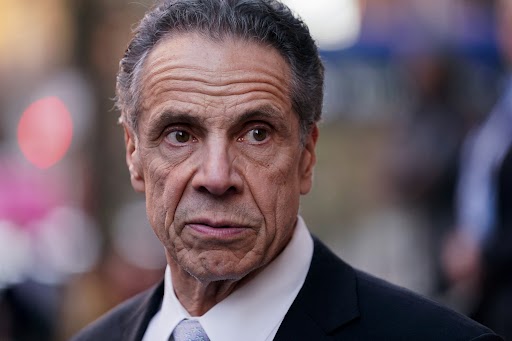Our Relationship With the Animal Kingdom
My wife, Sonia, and I are animal lovers. Growing up on a farm, Sonia has lived with animals in a richer and more intimate way than most. As Whittaker Chambers movingly noted in the prologue of his great book, Witness, nothing more reflects the struggle for life and the certainty of death then life on a farm. If the local laws governing livestock allowed farm animals in our village, we would surely have had our own little menagerie. My neighbors, I’m certain, are eternally grateful for the existence of such laws.
As it turns out, our relationship with the animal kingdom is limited to one little black dog that happens to live in my house. In fact, he often acts as if he owns it. During my lifetime, I’ve had three dogs, Butch, Samson and now, Nino, who is 11-1/2 years old. Relatives have asked me which of the three was my favorite. My answer is always the same: The one I had at the time. And it’s true. There is something magically uplifting about a dog’s natural sociability: its boundless affection, loyalty and how they make you feel that by just walking in the door the greatest thing in the world has happened. Like a sunburst after a drizzly, cloudy day their warmth clothes you.
Even the poets have paid homage to dogs. Take Lord Byron’s immortal tribute to his dog, Boatswain, inscribed on a monument in the garden of Newstead Abbey:
“Near this spot are deposited the Remains of one who possessed Beauty without Vanity, Strength without Insolence, Courage without Ferocity, And all the Virtues of Man Without his Vices.”
A paean as impressive as it is moving. My favorite, however, is a poem simply entitled, Rags. It’s about a cur that was a hero on the Western Line during WWI and ends up a vivisected brute in an institute that engages in animal experiments. If you can read this without becoming misty-eyed then a vital organ inside of you has stopped beating.
This shared love of animals inspired us to become members of the Humane Society for the prevention of cruelty toward animals. My sympathies were first enlisted for all animals when in college. I read Upton Sinclair’s The Jungle and was horrified by the frightful, blood dripping descriptions of the slaughterhouses of Chicago. For the men who worked there, day after day, it had to be a soul-destroying job. I could not help but think there must be a more humane way.
While I’m not a vegetarian, I believe society is morally obligated to recognize that all sentient beings, for no other reason than they share with us the breath of life, are deserving of humane consideration. That while our larger brains have given us dominion over all living creatures we are, in the final analysis, still just a part of the fabric of the universe.
If my sentiments romanticized the plight of these animals, or flattered my own moral probity, the historian, Will Durant, cured me of this daydream with this stunning passage: “In the last analysis civilization is based upon the food supply. The Cathedral and the capitol the museum and the concert hall, the library and the university are the façade; in the rear is suffering and death.”
Behind the comforting, civilized veneer of society, Durant was telling us, its lofty philosophy, music and art were the bloody hands of killers who did our dirty work and put the meat on our kitchen tables, making it possible for us to enjoy the triumphs and cultural glories of the world.
Notwithstanding our complicity in harvesting living resources to satiate our palate, whenever animals are treated like mere objects, and made to live their whole lives in cramped cages and stalls only in the end to be slaughtered for no other purpose than to maximize profit, as happens every day at factory farms, it is cruel to the animal and dehumanizes us. Robert Blake’s, “A Robin Red breast in a Cage/Puts all Heaven in a Rage,” expresses the unnaturalness of imprisoning the wild in a habitat where nature never intended it. Moreover, the notion that everything is subject to our whims has, at its center, a solipsism that often leads to the worst abuses of power.
For countless centuries, hunting was necessary for human survival. “Red in tooth and claw” was the ineradicable law of nature. As a sport (if you can call it that) hunting is something I tolerate but hardly celebrate as some ancient ritual that connects us to our primeval roots when, if you listen to the news, it seems we are too connected to those primeval roots. Hunting has been described as an act of rebellion against one’s own mortality, as if by possessing the power of death one defeats it. Whether that’s just pop psychology masquerading as deep analysis isn’t the point, but that hunting should be regulated and supervised to prevent widespread abuses very much is.
Before the 20th century, hunting often did not fall under the aegis of any governing authority. The upshot was the wholesale slaughter of various species. William F. Cody, more famously known as Buffalo Bill, had, no doubt, his heroic qualities, but winning his sobriquet by callously and indiscriminately killing thousands of Buffalo on the American plains was decidedly not one of them. His spiritual descendents are no longer killing Buffalo, but airborne sharpshooters are slaughtering thousands of elephants as a bizarre form of animal husbandry while Japanese factory ships and helicopters indiscriminately track down whales and dolphins, often electrocuting them. The Chinese government mercilessly exterminates dogs, which, considering how they treat their own people, should hardly come as a shock. In Africa there are poachers of every sort greedily plying their trade who, not infrequently, bring species to the brink of extinction. And the list goes depressingly on.
It is time to enact humane farming statutes so that the agri-business behemoths can exercise a more benevolent guardianship over their animals. Anti-factory farm initiatives were successful in California and Arizona and public sentiment, in general, appears congenial to such humanitarian measures on behalf of our wildlife. The British historian and statesman, Thomas Babington Macauley, once noted that bearbaiting should be banned not so much for what it does to the bear but for what it does to us. On an existential plane, animal cruelty and wantonness cannot make peace with our loftier values and aspirations; for when unpitying, sanguinary actions run riot, “Man’s inhumanity to man” is but a small step away.
While massive killing of livestock is inevitable in most civilizations, these laws will raise our collective consciousness and, I hope, provoke a greater accountability to life on this planet as well as making us more conscious of our own humanity. For the sake of everything that is good and merciful, can we do anything less?

































